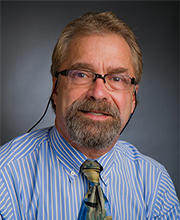Wayne A. Marasco, M.D., Ph.D.

The Marasco Lab is actively working on antibody discovery for COVID-19. See their COVID-19 page to learn more.
The Marasco lab focuses on the treatment of emerging infectious diseases and cancer. Located in the Department of Cancer Immunology and Virology at the Dana-Farber Cancer Institute, the lab's general research interests are in the field of targeted immunotherapy.
The Marasco lab’s research interests are in human monoclonal antibody (Mab) immunotherapy and broad-spectrum anti-viral vaccine development. They use human Mabs in functional and structural studies to understand mechanisms of viral entry, identify common targets that provide broad-spectrum protection, and develop strategies that prevent the viruses from undergoing neutralization escape. Vaccinated/infected humans and humanized mice are the B-cell sources of antibody genes for these studies.
The group's discoveries of common and highly conserved structural elements on the envelope glycoproteins that serve as cross-neutralizing targets for Mab therapy have allowed them to make therapeutic inroads into the prevention and treatment of a wide range of human pathogenic coronaviruses, flaviviruses, and influenza A viruses.
The Marasco lab has advanced therapeutic Mab development through NIH-NIAID product development programs in the areas of SARS, West Nile virus, and Influenza A infections. Their pioneering studies in influenza, which resulted in our finding of a "universal" vaccine target that can provide broad-spectrum protection against a wide range of influenza A viruses, led to a paradigm shift in the field of influenza immunotherapy and vaccine development.
The National Foundation of Cancer Research (NFCR) Center for Therapeutic Antibody Engineering (CTAE) at Dana-Farber Cancer Institute, founded by Marasco, is working in a broad range of discovery and translational research in cancer. The group is uniquely placed to advance their novel immunotherapy discoveries from bench to bedside.
Research in the Marasco group encompasses HIV/AIDS, emerging infectious diseases (SARS, highly pathogenic H5N1 avian influenza (bird flu), West Nile Virus (encephalitis), Denge virus (hemorrhagic fever)) and cancer (Adult T-cell Leukemia (HTLV-1), breast CA, renal cell carcinoma (RCC), cutaneous T-cell Lymphoma (CTCL)). This breadth of research is made possible because of two of their research developments in the field of human antibody engineering.
The first is their seminal discovery that human antibodies can not only be used to target proteins on the surface of cells and microbes, but can also be used in the form known as intracellular antibodies or intrabodies, which can be delivered to cells by gene transfer techniques. In this way, human antibodies can be expressed in different subcellular compartments inside cells where they can bind to their target protein and modulate its function.
The second is the construction and characterization of one of the largest human antibody phage display libraries ever made (27 billion members). Discoveries made by the Marasco group allowed them to validate the quantity and high quality of the human antibodies that can be obtained from this library. Ongoing pre-clinical studies and clinical trials using human monoclonal antibodies (Mabs) are moving forward for the prevention and treatment of SARS and flavivirus diseases including West Nile virus encephalitis. They are also moving forward with a genetic/cellular therapy for the treatment of RCC.
Biosketch
Wayne Marasco is Professor in the Department of Cancer Immunology and Virology at the Dana-Farber Cancer Institute, Professor of Medicine at Harvard Medical School, and Associate Physician in the Division of Infectious Diseases at Brigham and Women's Hospital. His research interests are in the field of human antibody engineering and the use of human antibodies in discovery research and in the treatment of human diseases. To greatly expand the use of human monoclonal antibodies (Mab) in the treatment of cancer, he founded the National Foundation of Cancer Research (NFCR) Center for Therapeutic Antibody Engineering (CTAE).
Marasco is a physician/scientist with clinical training in Infectious Diseases. His clinical subspecialty training is in the care of immunocompromised patients with bone marrow and solid organ transplants and cancer. His clinical practice has had a profound influence on the research conducted in his laboratory at Dana-Farber Cancer Institute. During rotations on the inpatient Infectious Disease service at BWH/DFCI, he supervises ID fellows and medical residents in the management of infections in immunocompromised patients.
Feature stories
Institute Researchers at Forefront of Development of Antibody Therapy for COVID-19
Cooperating to Combat Coronavirus
Dual-Targeted CAR-T Therapies in Solid Tumors: Q&A With Dr Wayne Marasco
Applying CAR T Cells to the Treatment of Renal Cell Carcinoma
